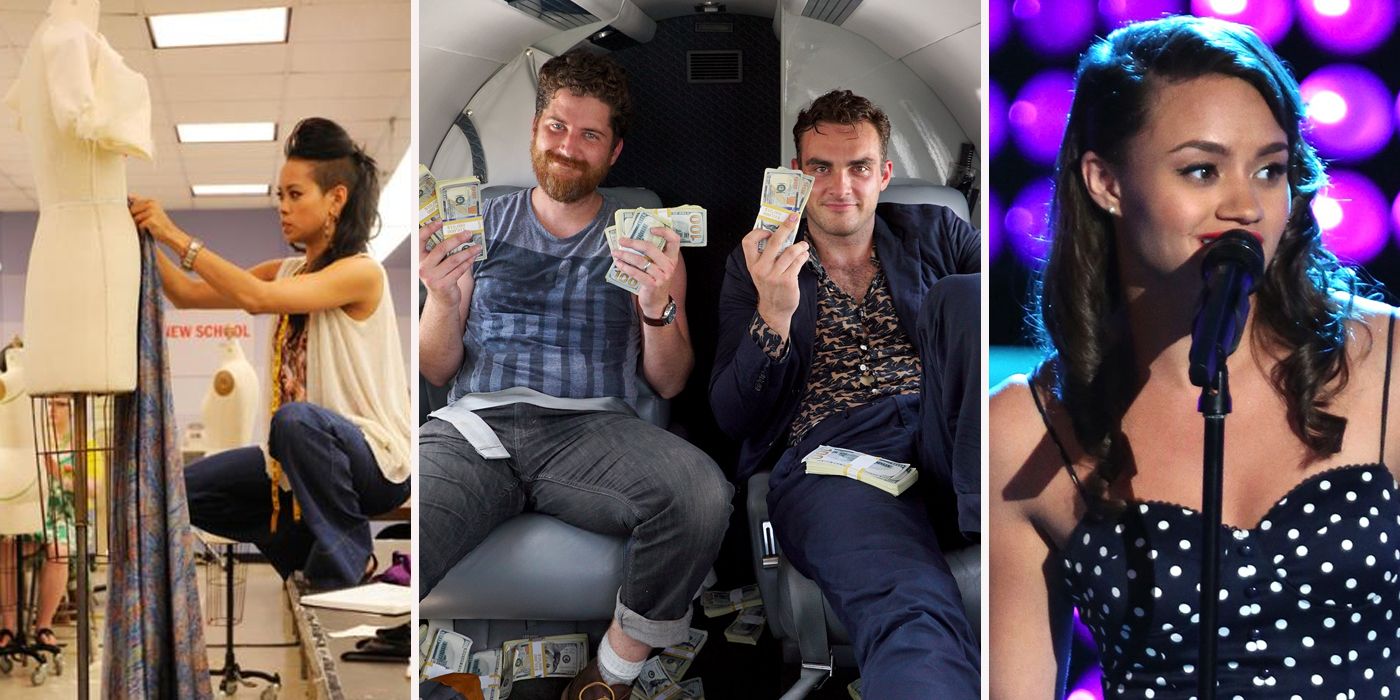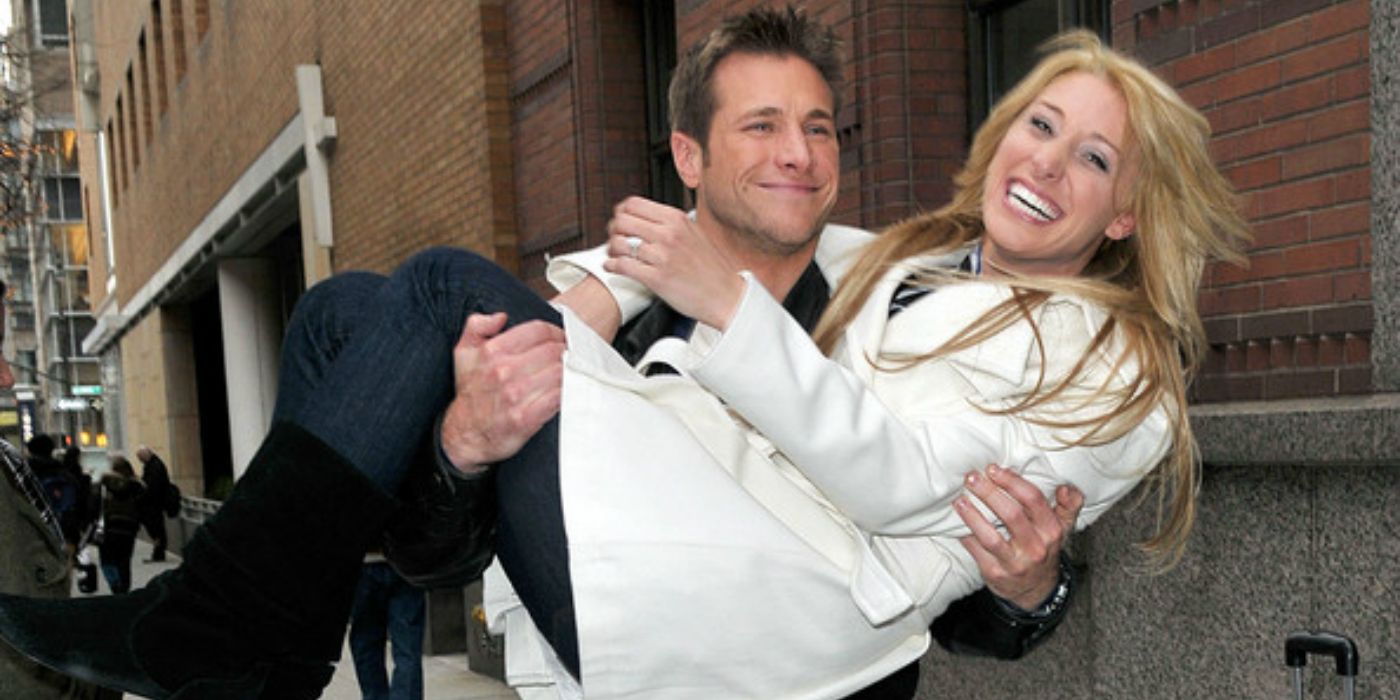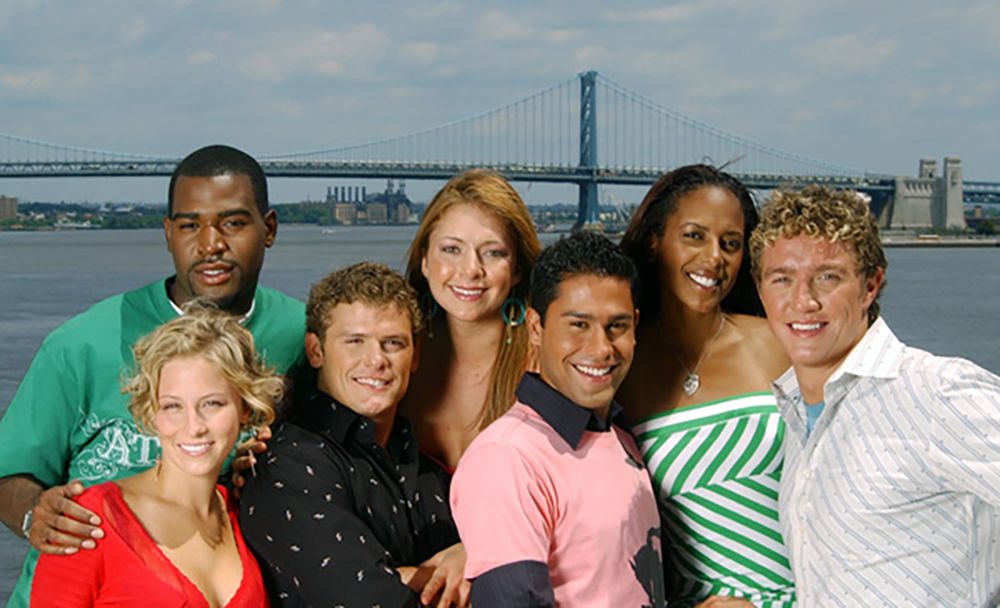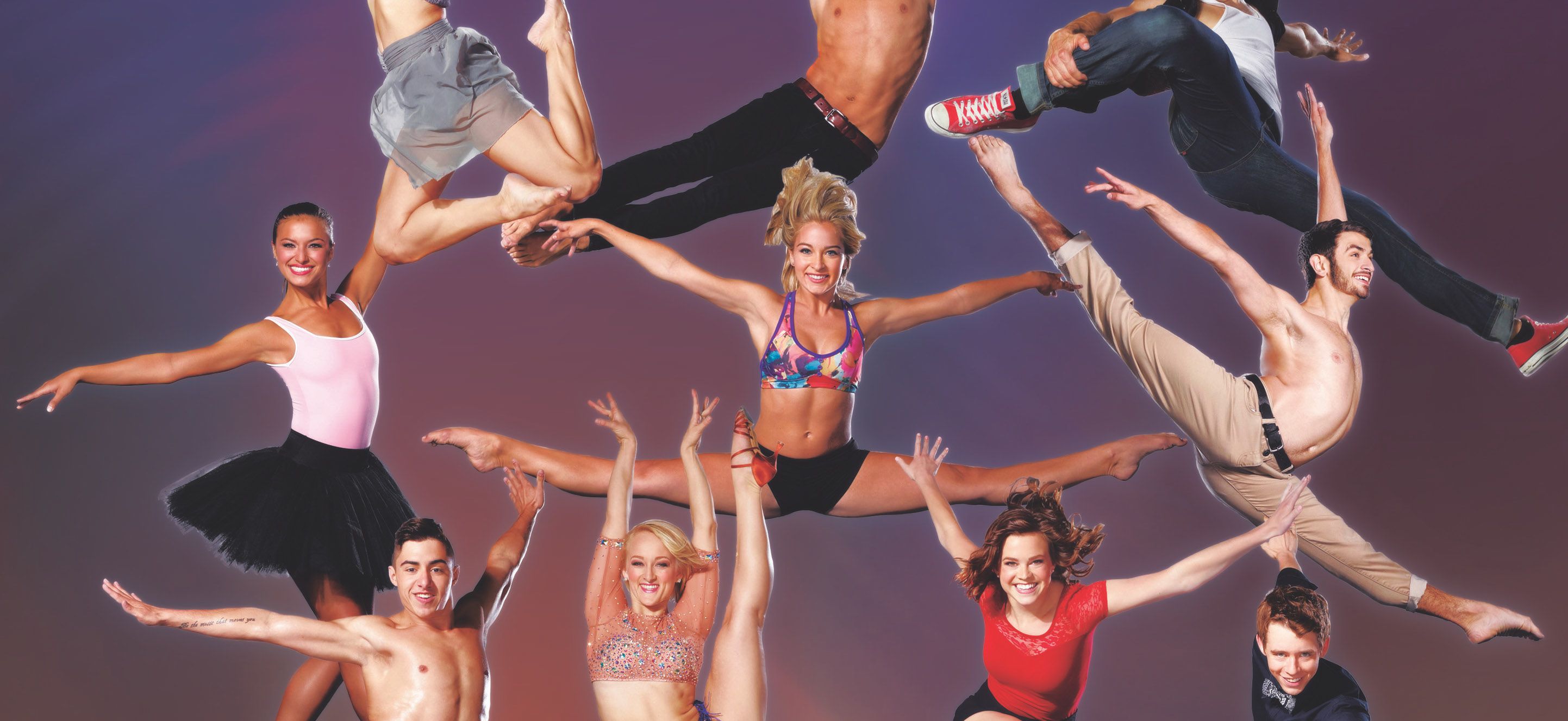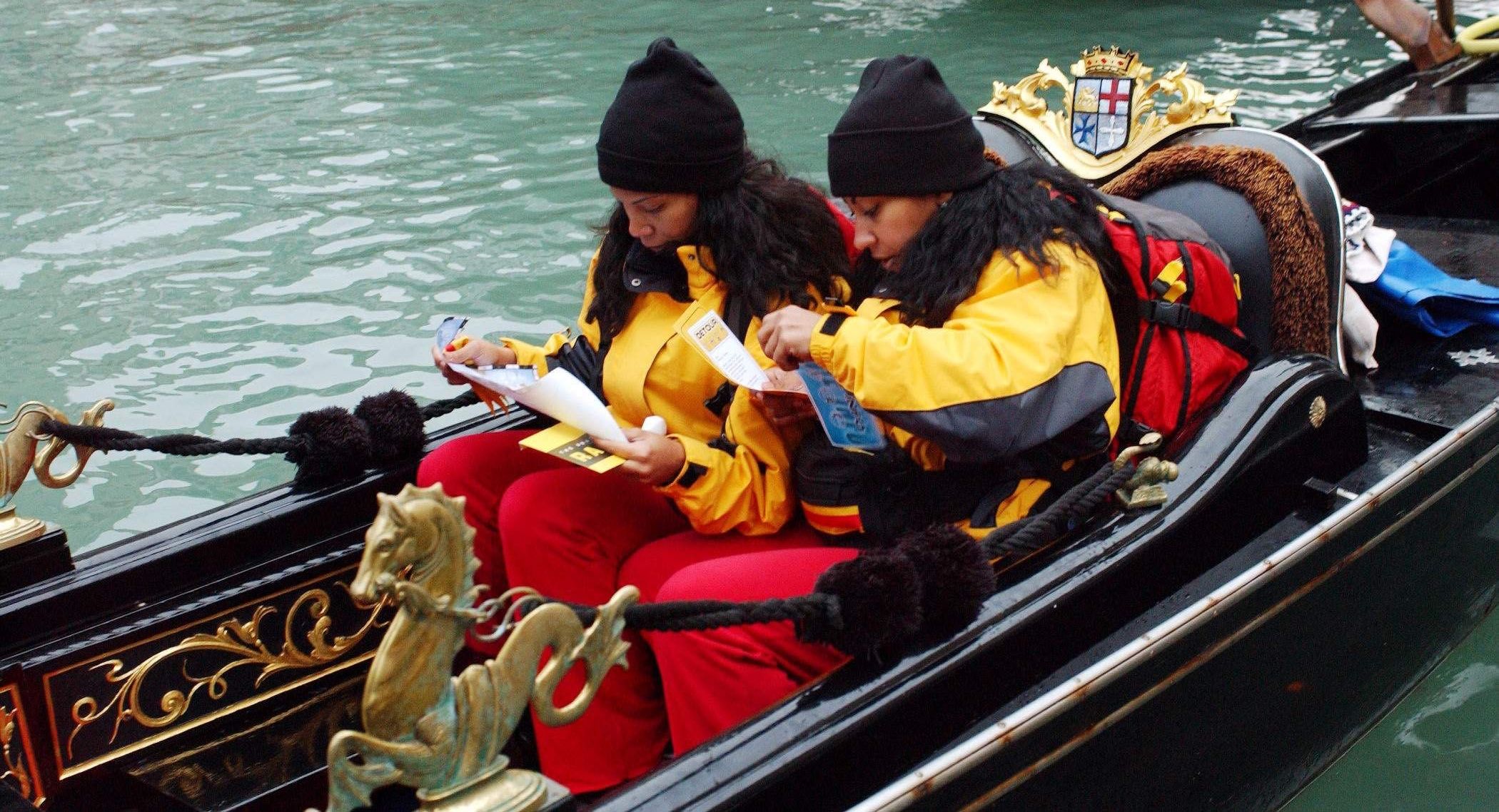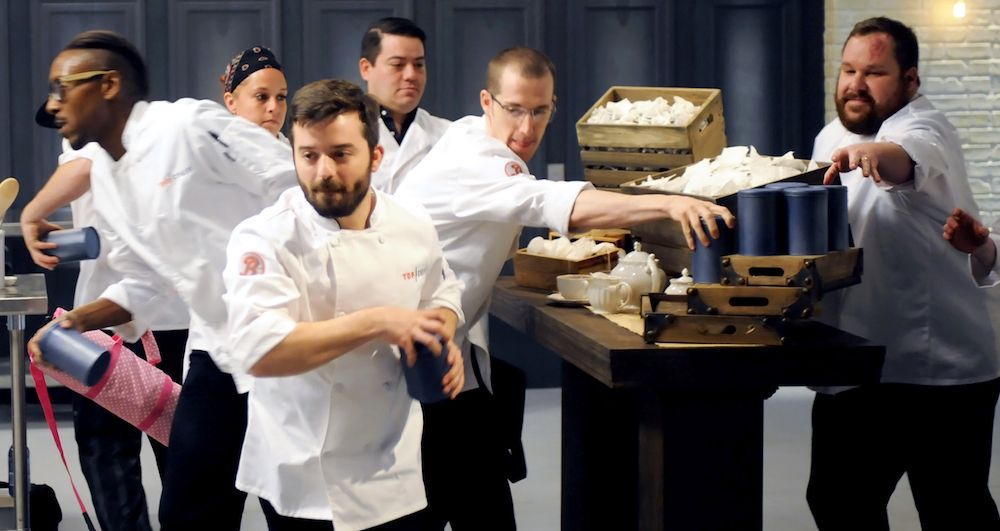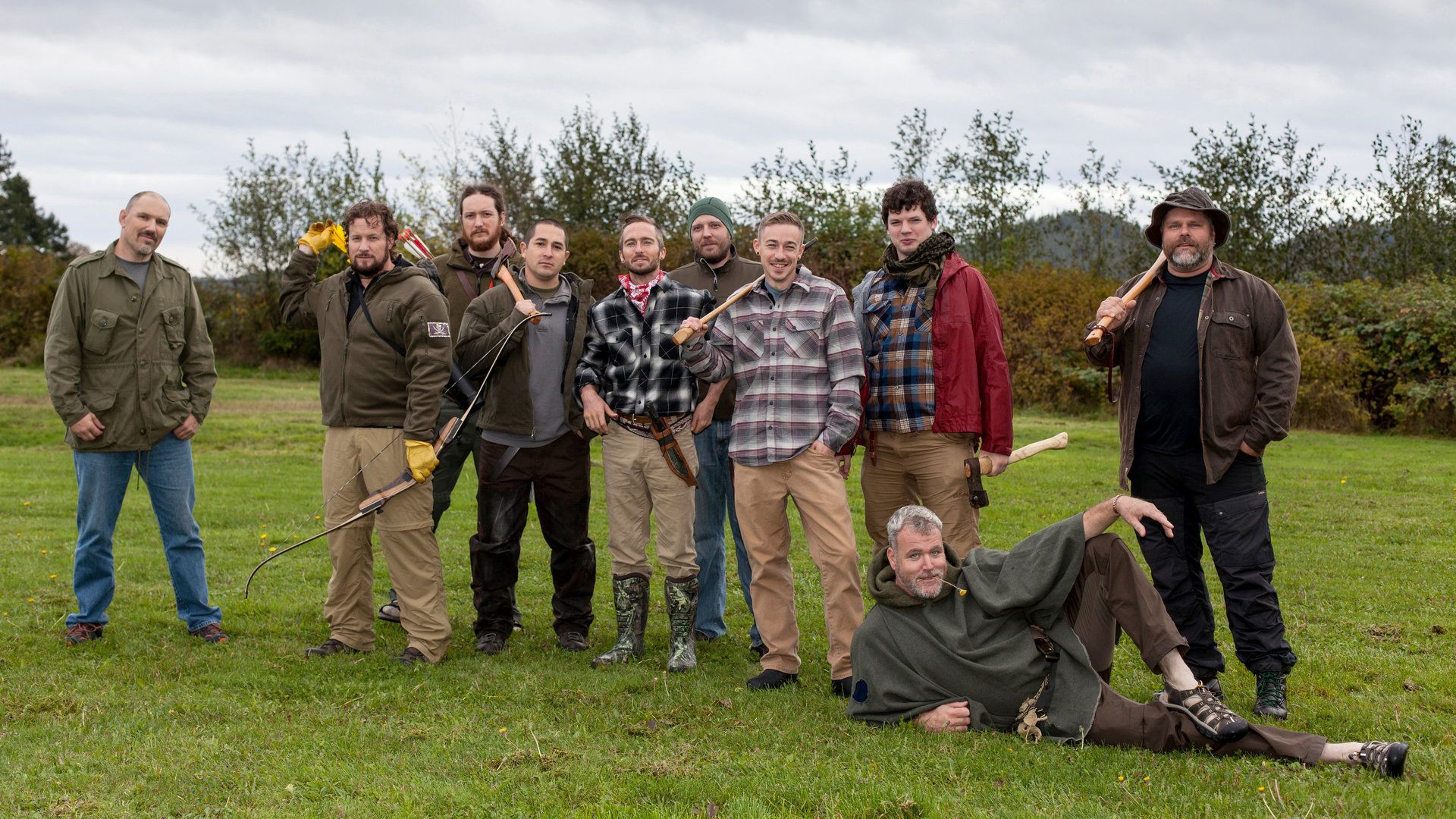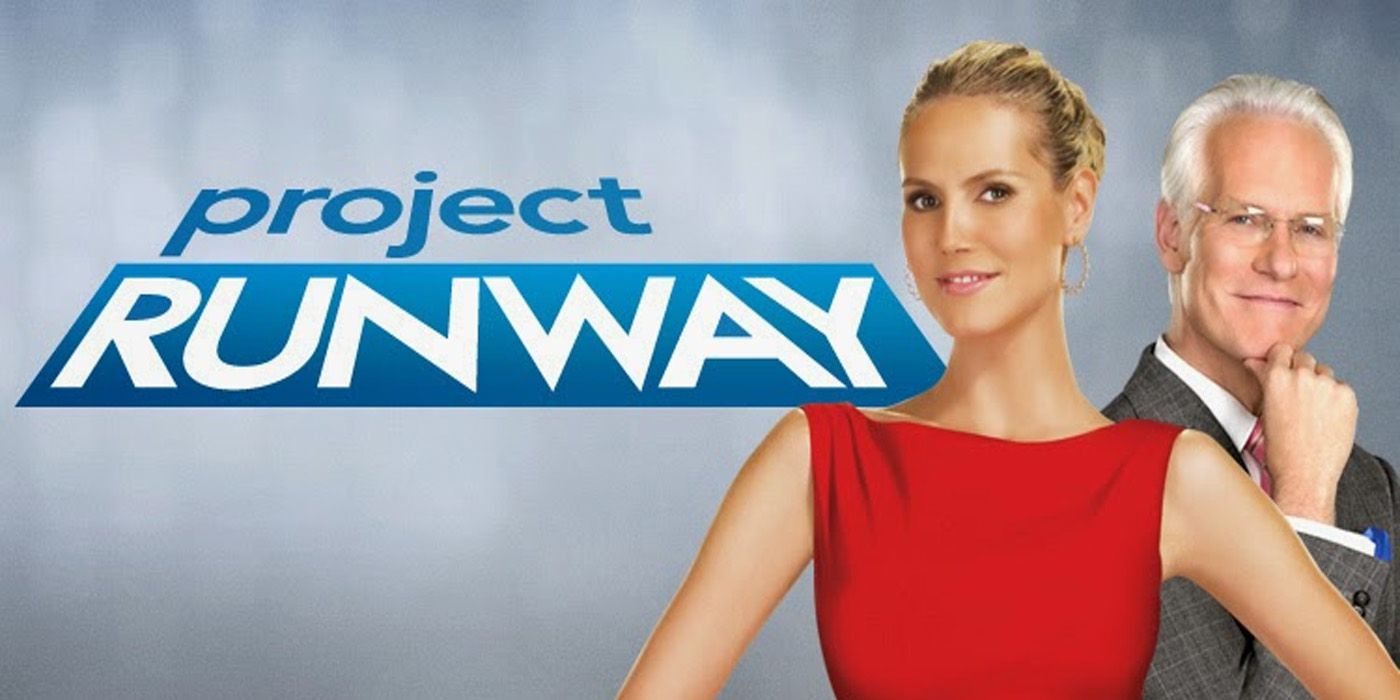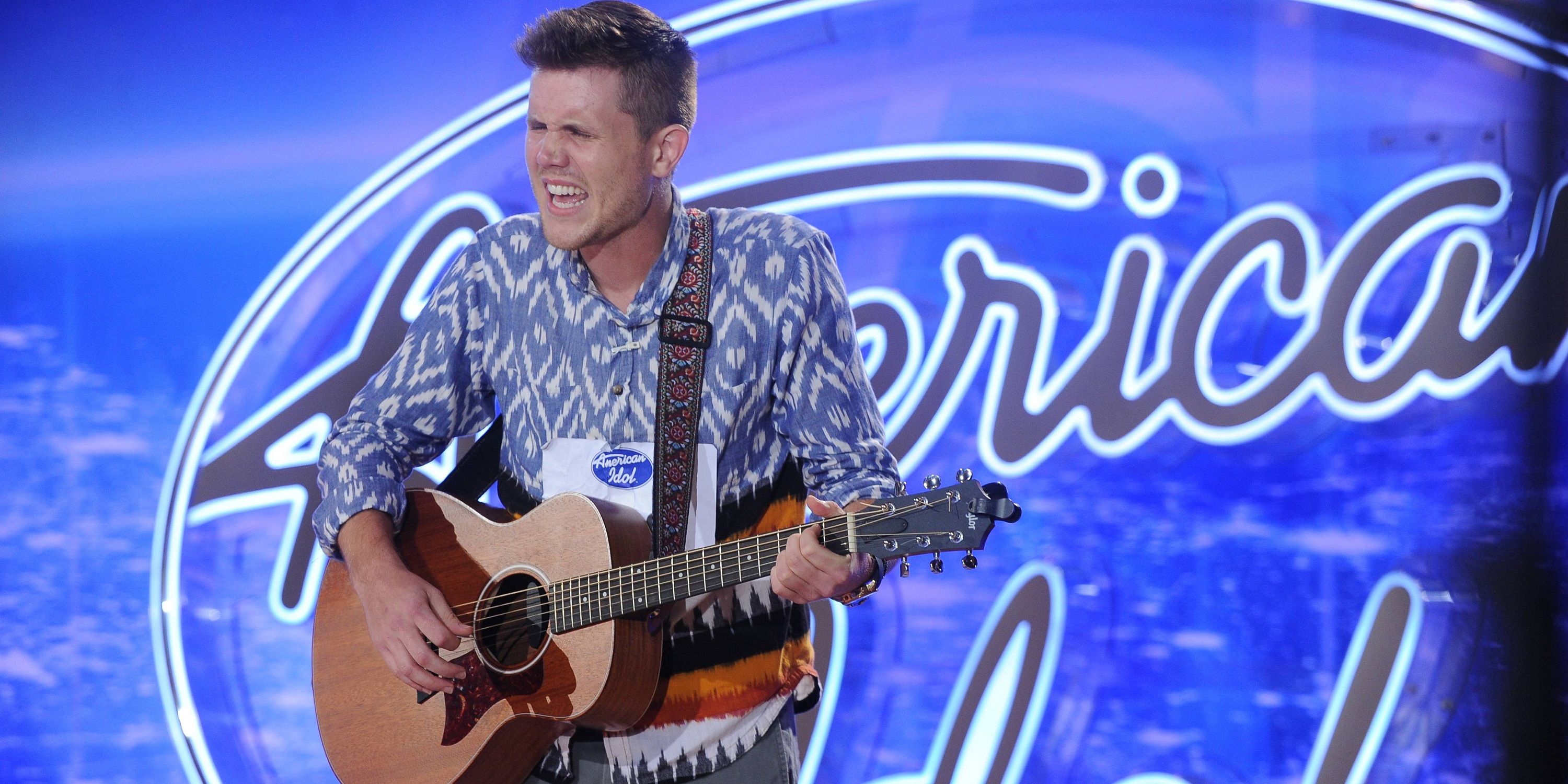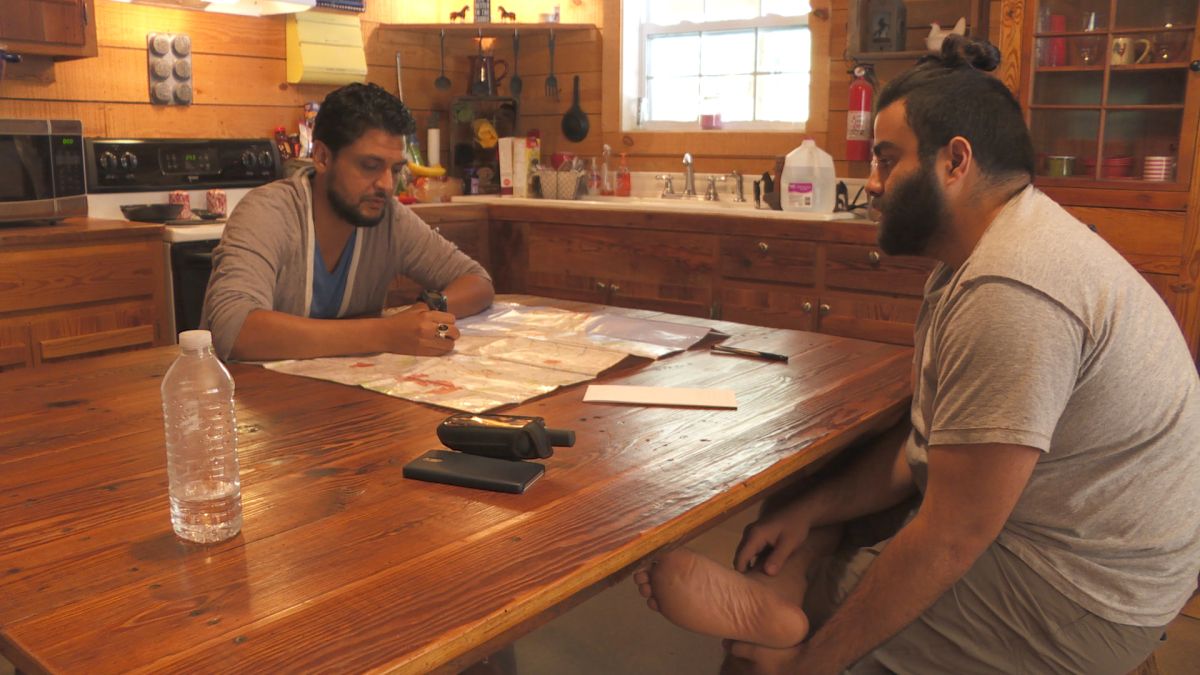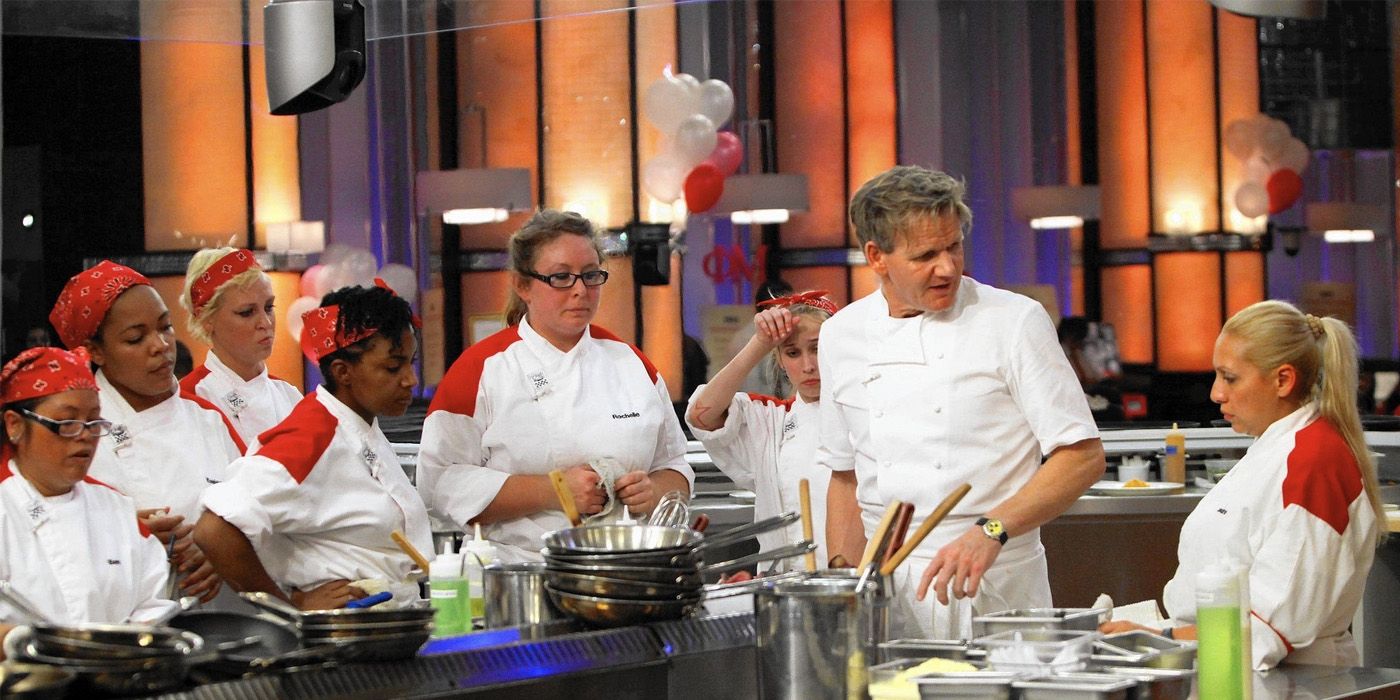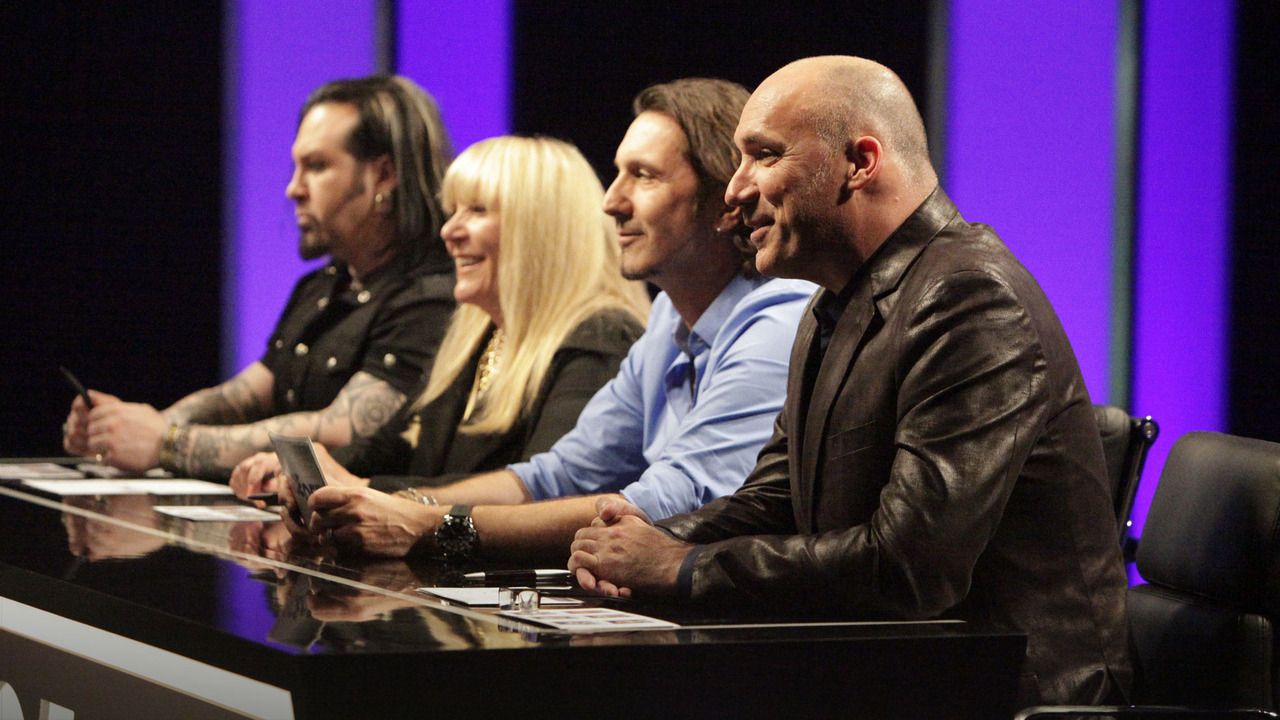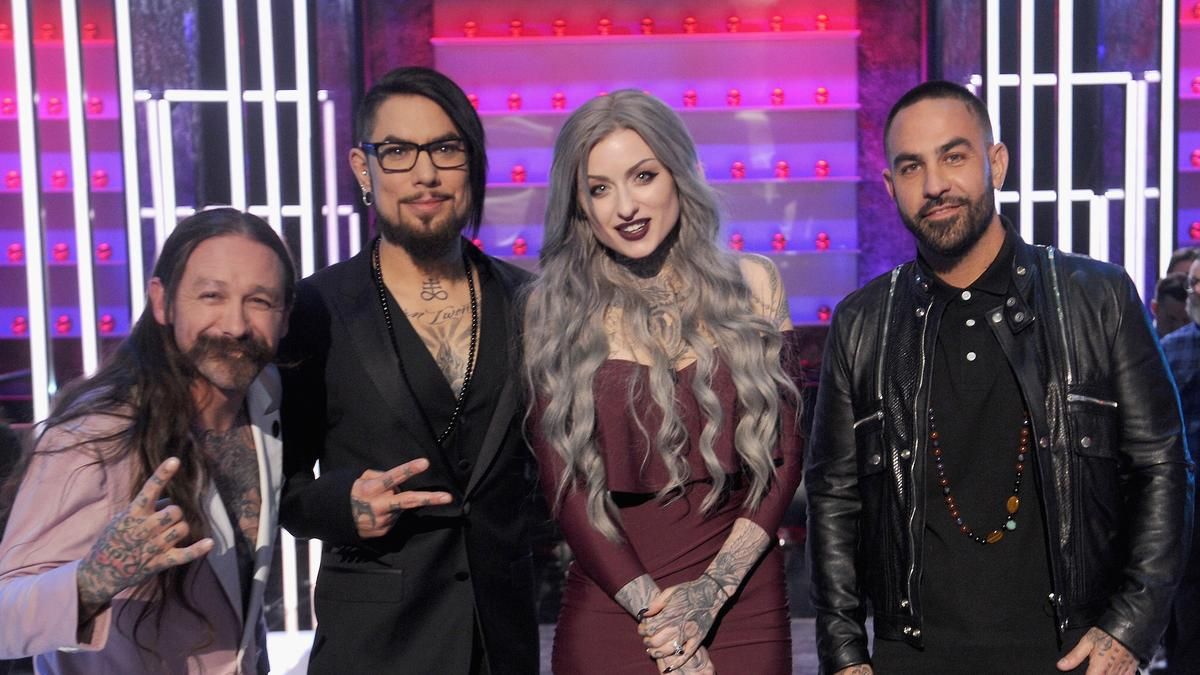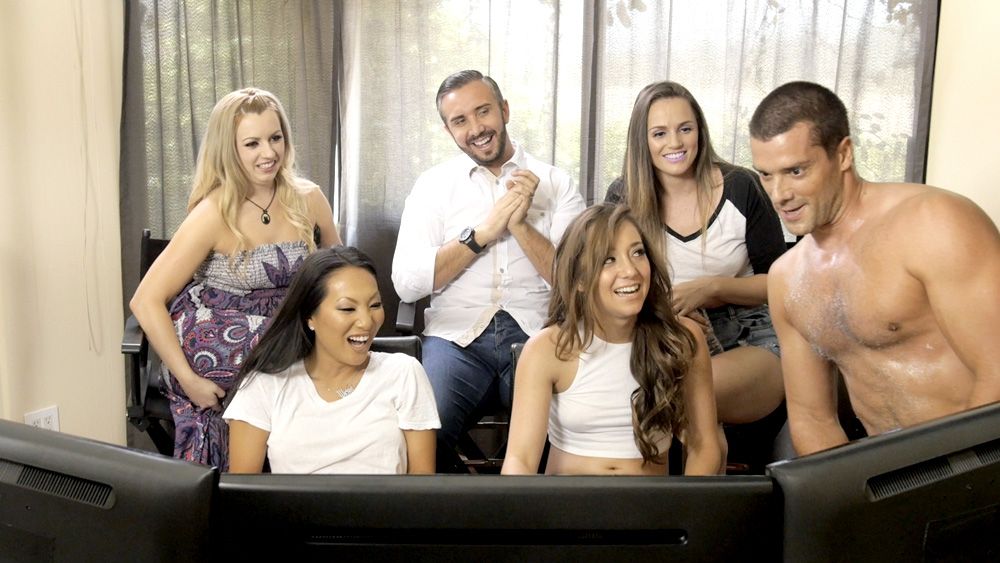We already know that what ends up airing in our favorite -- and less favorite -- reality TV series isn't necessarily what happened. The producers edit everything to tell a story.
That's not to say that these shows totally lie to viewers, though-- well, sometimes they do. However, usually they just bend the truth into the shape they need it to be in order to sell ads and keep viewers entertained.
So despite producer and network claims, reality TV is not nearly as "unscripted" as it appears-- and it's not just in the editing. For legal, budgetary, and dramatic reasons, a multitude of rules are in place to protect both the stars and the show-- and we don't just mean competition shows. Obviously those will have some guidelines or we wouldn't know who won.
However, next time you're watching something like Hell's Kitchen, America's Next Top Model, or The Amazing Race, just know that behind even the "finessed" events you're watching, the participants have some ridiculous regulations they have to follow.
These dictate what they can do and say even once the cameras are off.
With that said, here are the 15 Crazy Rules That Reality TV Stars Have To Follow.
No singing
Considering the huge variety of shows under the “reality” heading, it seems unlikely that these shows would share a universal, unbreakable rule.
However, they do, and participants have one act they can never, ever do: sing.
Obviously it’s fine on The Voice and American Idol-- that’s the point. However, even those shows limit their contestants’ selections to pieces that the network can secure the rights to, and that’s a hard enough process without people just singing all willy-nilly.
Participants on shows like Big Brother can’t sing at all because, if two people have a fistfight while a third is belting out “Take On Me”, the producers can’t use the footage without paying licensing fees.
Remember that the whole point of these shows is that they’re cheap to make, and they don’t stay that way if they’re shelling out money to A-Ha.
Attending reunion shows is mandatory
Even once the show is over, reality series participants aren’t free of their contracts. Some clauses extend far beyond when the last episode airs. These include a limit on when they can run for public office and, in some cases, extended confidentiality requirements.
Our favorite, however, is the common stipulation that says that, if the producers want to make a reunion show years later, everyone has to show up. It’s convenient that everyone has to agree to this before they all grow to hate each other.
Some exceptions exist, obviously. The show isn’t going to make someone fly back from active duty or summon them from the hospital, for example. However, everyone else is stuck. It’s like if you had to sign a contract requiring you to go to Thanksgiving dinner, even though you know your shady uncle is going to be there.
No one over 30 (So You Think You Can Dance)
We understand why most reality competition shows impose a lower age limit on their participants. Since they’re contests, anyone who shows up needs to be the legal age of the majority for their home state to ensure that the show doesn’t incur any legal wrath.
However, shows like So You Think You Can Dance also impose an upper age limit. For example, the show won’t take anyone who is over 30 at the time that they register.
It’s hard to say why. Our best guess is that the high-impact contest might be too much for the old, osteoporosis-riddled skeletons of the people who were alive when Robocop came out.
Those ancient specimens can take their boogie shoes over to Dancing with the Stars where they belong.
Only allowed to travel with show-sanctioned cab companies (The Amazing Race)
We don’t like to be cynical, but reality TV’s backstabbing and competition-based series kind of bring it out of us. Luckily, it works out that our assumption that everything is the worst is wrong sometimes.
That was the case when we found out that contestants on The Amazing Race can’t just hitch a ride with whomever. They have to use show-sanctioned cab companies as they make their way across the world-- and we know what you’re thinking because it was our first thought, too.
We assumed that this was because the producers had made exclusivity deals with certain transport firms, and the racers had to choose correctly to avoid breaching a contract.
However, the truth is that the show vets companies to make sure they’re reputable. The real point is to minimize the chances that sketchy people will rob or rip off the racers-- and we're fine with that.
Contestants must pay $1,000,000 if they reveal spoilers (Top Chef)
It’s hard to believe that a reality TV show could kick out so many people while the program is still filming, and nobody ever races to the nearest TMZ news vulture to fill them in on what happened. However, it’s easier to believe once you’ve read the contracts.
Many of them contain clauses that impose huge fines on contestants who blab before the show has finished airing.
In Top Chef’s case, the amount is staggering.
Those contestants agree to pay the show $1,000,000 if they let spoilers slip before the finale-- and it’s only slightly better if they do so afterward. Violating the confidentiality agreement then will cost them $100,000.
In both cases, they have to also give up any money that they made from selling their insider information. Presumably, the fines are high enough to be effective deterrents because we haven't heard of anyone breaking their agreement yet.
Water shoes include only Crocs (Alone)
The History Channel’s Alone is a survival series that drops its participants off in the middle of nowhere and sees who can survive the longest. The winner gets $500,000, which is just enough to ensure that they never have to go camping again unless they really want to.
They can bring stuff with them, however. The show has a gear list from which the survivors can choose the things they need to survive. They can't just bring all the bedding and tools they can carry, but they have more wiggle room in their clothing picks. However, even those are oddly specific.
The list of approved “water shoes,” for example, state that participants may bring one pair of Crocs on their wilderness trip. We hope we never find ourselves in a situation where our survival depends on some of the ugliest shoes in the world-- we’d call for a rescue before then.
No designing off-camera (Project Runway)
This one seems overly strict at first. This is because if one of the contestants on Hell’s Kitchen wanted to go up to the dorms after dinner service and bone up on soufflés, for example, we doubt anyone would stop them. However, they typically just eat bad frozen food and smoke, so if that actually happens, we’ve never seen it.
The point of Project Runway’s restriction on where and when contestants can work makes sense from a fairness point of view. The show wants to make sure everybody has the same amount of time to work and therefore has the same access and limitations.
Season 16 contestant Claire ended up leaving the show after fellow designer Margarita spotted her with a tape measure in her hotel room. Now we know why she was booted.
Polaroids are allowed (America's Next Top Model)
Our favorite weird rules for reality stars are the ones that are oddly specific, like the Crocs on Alone or The Bachelor’s weird, legalese definition of what it means to be single. In case you’re curious, most dating shows consider you “taken” if you’ve been seeing someone for two months or more.
America’s Next Top Model includes some similar, strangely granular guidelines in its application instructions.
The more interesting ones pertain to the demo photographs that applicants can include in their packets.
For example, only one of their three pics can be in black and white and the reviewers will accept Polaroids “as long as you are clearly visible.” That may be a trick, though, since we’ve never seen a Polaroid photo in which the subjects were clearly visible.
Contestants can't be models (American Idol)
At face value, this rule sounds incredibly ridiculous and arbitrary. Who doesn’t like models? Okay, well, some people don’t, but who says models can’t follow their (other) dream to become the next pop superstar? American Idol says, that’s who.
This isn’t some kind of weird grudge that the producers have against models, though. It’s just a way to simplify things greatly for whomever ends up winning.
Grabbing the top spot on this show means that you’ll be signing a contract with a record label, and if you already have a deal with someone else — say, for acting, singing, or, yes, modeling — it could be a conflict at best or a full-on breach.
It’s not surprising that a network wouldn’t want to untangle that legal jumble if it arose.
Teams must use an ATM twice (Hunted)
Hunted has teams of two on the run from a group of investigators. The fugitives’ goal is to remain undetected for four weeks while the hunters try to pick up their cell phone activity or lure them out with fake dating profiles.
You’d think the smart prey would just find a cave to hide out in for a month, away from satellite coverage, security cameras, and cell towers. That is a great idea, but it would make boring television.
Thus the rules actually forbid it. Teams have to change locations regularly to put themselves at risk of actual capture.
Even stranger, another requirement demands that they make two stops at ATMs during their runs, and these can’t be on the same day. The point is that doing so brings them into the open, creates an activity trail, and gives the hunters a lead to follow.
No guns allowed (Game2: Winter)
We know this sounds like a good idea considering how insane some reality contestants are. However, the more we learned about Game2: Winter, the worse it seemed.
The premise was to drop contestants into the middle of Siberia to see who survived until spring. Cameras throughout the area would capture the events, and they’d stream the proceedings online.
Considering the fact that this was straight-up wilderness and thus the area was full of wolves and bears, we understand that the contestants might want some protection. Actually, the show obliged them… by allowing knives.
We don’t know exactly how hard it is to stab an angry bear, but we can guess.
Luckily for everyone, Game2 never happened. Either Russian authorities shut it down or, as producer Yevgeny Pyatkovsky claimed, it was a fictional marketing experiment. So we don’t have to find out how many pokes it takes to stop a bear from attacking you.
Contestants must undergo psychotherapy (Hell's Kitchen)
Most reality shows make applicants go through physical and psychological screenings before they participate to ensure that they’ll be able to withstand the stress that they’re about to experience. However, one program doubles up on that, and we understand why.
Hell’s Kitchen puts chefs through the culinary equivalent of boot camp as they try to finish dinner services and challenges while Chef Gordon Ramsay yells at them and makes them touch raw fish. It’s almost as tiring to watch as it must be to experience, and the producers are aware.
This is why, when contestants leave, they go directly to a studio-controlled house for further testing and relaxation to come down from Ramsay calling them “f***ing muppets” and tearing apart their cooking skills. It’s probably a good idea.
Producers have more say than judges over who stays
Competition shows follow a similar format: contestants receive a challenge, get their work done, maybe have some fights with the other people, and then present their work to a panel of unimpeachable judges. Then this group declares one person to be the worst, and they leave. Right?
Well, not exactly. If you’ve noticed that the same terrible, incompetent, argumentative people have a habit of sticking around forever, that’s because they have some guardian angels behind the scenes.
Those angels are the producers, who reserve the final call on whether someone leaves or stays regardless of how well they did in the challenge.
The main reason for keeping the worst people on is that they provide drama and keep viewers coming back to see who will almost clock them next week. Therefore, if producers have specifically cast someone as the series’ villain, chances are high that they're going to be around for a while.
Save money whenever you can (Ink Master)
It’s easy to think that the networks making reality series are bottomless pits of cash thanks to the fact that they don't have to spend a bunch of money on script writers and actors. However, it’s still a business with schedules and budgets, and the producers treat every dollar like it’s going to start granting them wishes.
That’s especially true on tattoo-artist competition Ink Master, which has its contestants trying to outdo each other with designs and technique.
However, they need somewhere to lay their ink down, and that’s where the “Human Canvases” come in.
These are volunteers who don’t mind appearing on TV to receive a permanent tattoo so that someone else can win $100,000. By “volunteer,” we mean it: the application specifically says that “Ink Master does not reimburse human canvas participants for travel or accommodations in connection with participation on the show.”
These Human Canvases also have to pay for their own flights and hotels-- but hey, free tattoo.
No experience allowed (The Sex Factor)
We don’t blame you if you’ve never heard of The Sex Factor. It was a competition to find the next big adult star from a set of up and coming contestants. Therefore it did not air on NBC, nor even Fox. Instead, it ran on an adult website where it could be its graphic and adult self.
The Sex Factor surely made a few demands of its participants including a lack of communicable diseases. However, a more interesting and surprising condition was that no participant could have “performed” on-camera before the show.
In the seventh episode, however, contestant Adrian Lee Ray earned a disqualification when judges discovered that she had appeared in a video with adult star James Deen.
The odds of this remaining secret seem impossible, since Deen is extremely famous and Ray is also a model for Suicide Girls.
---
Can you think of any other insane rules that reality stars have to follow? Sound off in the comment section!

